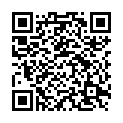|
|
|
| Module code: E2601 |
|
|
2V+2P (4 hours per week) |
|
5 |
| Semester: 6 |
| Mandatory course: yes |
Language of instruction:
German |
Assessment:
Written exam
[updated 08.01.2020]
|
DFBEES-409 (P610-0011) Electrical Engineering - Renewable Energy and System Technology, Bachelor, ASPO 01.10.2019
, semester 4, mandatory course, technical
E2601 (P211-0114) Electrical Engineering and Information Technology, Bachelor, ASPO 01.10.2018
, semester 6, mandatory course, technical
|
60 class hours (= 45 clock hours) over a 15-week period.
The total student study time is 150 hours (equivalent to 5 ECTS credits).
There are therefore 105 hours available for class preparation and follow-up work and exam preparation.
|
Recommended prerequisites (modules):
None.
|
Recommended as prerequisite for:
|
Module coordinator:
Prof. Dr. Michael Kleer |
Lecturer: Prof. Dr. Michael Kleer
[updated 10.09.2018]
|
Learning outcomes:
After successfully completing this course, students will be able to understand a microcontroller system and commission it for a given task. This module focuses on application-relevant aspects. Students will be able to independently find solutions to new tasks.Based on the previous lecture, this module will familiarize students with the applications of microcontrollers in defined areas of automation technology. The interaction of relevant peripheral components will be explained in detail and students will be able to practice their use based on examples. Students will be able to understand a microcontroller system in an automation application with its interfaces to bus systems and commission it for a given task. Our primary focus will be on the application of these skills.
[updated 08.01.2020]
|
Module content:
1. How integrated units work, Processing commands, Command range and memory access options, Using the ECB for simple tasks in automation and measurement technology, Specifying a task and creating programs 2. Using an assembler, Transferring the created programs into the target system and testing programs for functionality and completeness 3. Using bus systems, as well as networks and the connection to the ECB 4. In addition to the lectures, the effects of individual components will be investigated in depth in the lab through practical exercises and projects.
[updated 08.01.2020]
|
Teaching methods/Media:
Presentation, blackboard, lecture notes
[updated 08.01.2020]
|
Recommended or required reading:
Horacher, Martin: Mikrocomputer, TU Wien, 1999 Johannis, Reiner: MC-Tools 15, Feger, 1994 Klaus, Rolf: Der Mikrocontroller C167, VDF Hochschulverlag, 2000 Schultes, Renate; Pohle, Ingo: 80C166 Mikrocontroller, Franzis, 1998, ISBN 978-3772358937
[updated 08.01.2020]
|


